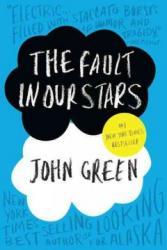
The Fault in Our Stars, written by John Green, is a very good novel that I have read this year. The main character in the book, is named Hazel Lancaster. Hazel has had a lung cancer that left her to have to use an oxygen tank every day. She thinks that she has a boring life, because she reads her favorite book over and over again, she stays at home every day, besides going to the support group for other people similar to her who have had cancer before. When she goes to this support group one day, she meets someone names Augustus Waters, and they become friends. He was at the support group because he had osteosarcoma and lost a leg. She tells him the favorite book she reads every day, and he decides to read it and, and ends up loving it.
Augustus surprises Hazel, and tells her that he hasn't used his "wish" yet- what cancer patients get when they may not live much longer. He told Hazel that he wants to go to Amsterdam and meet the author of Hazel's favorite author together. After a long time with doctors deciding if it is okay and safe if they can go, they finally are able to go to Amsterdam. This book was not predictable, and I enjoyed reading it a lot. The book had lots of parts in it that were funny, and sad. This book is one of the best ones I have read this year.
Reviewer grade: 8

The Scorch Trials, the second book in The Maze Runner series, was very good. I enjoyed the book because it was very interesting, and the book had lots that surprised me. This book is about when Thomas and his friends, or the "gladers," finally find a way to escape the maze, and are led to a place they can sleep in, eat, and relax. The gladers are shocked when, just a while later, they are locked in and can not get out. A strange man arrives a couple days later when they are confused, hungry and have no idea what is going on. The man tells the gladers that they need to go through phase two of something called the Trials. This part of the Trials is when they are forced to walk across a scorching hot desert, with people called "cranks" who are people who have an illness that makes them go crazy. The gladers were all threatened that they have the virus, and they would get the cure when they finish. All of the gladers decided to go, because if they didn't, someone would execute them. The story is told by Thomas's point of view, and what happens to him while he is completing phase two of the Trials. This book wasn't predictable to me, and it definitely surprised me with some things happening in it.
Reviewer grade: 8
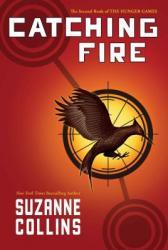
"Catching Fire" by Suzanne Collins, the sequel to her ever-popular "Hunger Games" novel, certainly bears a heavy burden of doubling-up on the success of her last installment. When I first began reading the novel, I dreaded that my interest in the story might slip away from me. However, as I continued to read, every turn of the page seemed more enjoyable than the last; and eventually, it became clear to me that Collins has done a phenomenal job with sustaining readers' attention and transitioning the story into a new narrative.
When readers left off in the last novel, Katniss and Peeta, in unison, emerged victorious as the winners of the 74th annual Hunger Games. As Katniss returns to district 12 though, she struggles with accepting the realization that her life will never be the same. Her feelings of dread culminate when she shares a conversation with President Snow, who threatens the life of her family if Katniss does not abide by his orders.
Snow, and other leaders in the Capitol, have seen Katniss' acts as rebellious, and will do whatever it takes to suppress uprisings. Namely, they devise a plan to host a special for the 75th hunger games, composed of the victors of previous rounds. This puts Katniss in a convenient position for the Capitol leaders, as she is the only female tribute to have ever won from district 12.
Katniss, Peeta, and the district 12 mentors find out about this news during their victory tour, in which Katniss is paraded over Panem and forced to keep peace amongst the districts. Helpless, Katniss and Peeta eventually come to accept the reality of their situation and prepare for the games. Under the council of Haymitch, they make allies with the other tributes, and as the story continues, their defiance manifests into a full-fledged rebellion.
I started reading this book immediately after the last and can say that I am pleasantly surprised with it. Collin's was able to meet the fans' expectations with this new novel, while also throwing in a number of unforeseen plot twists.
One complaint I might file with this novel is that the story parallels the first book in the trilogy too closely. At times while reading, the plot felt repeated, as if Collins' was reusing many of the same plot points from "The Hunger Games".
If you decide not to continue on with this next novel, I would pin my recommendation on "The Maze Runner". The story is similar to "The Hunger Games", but unique enough to engage your intrigue.
Overall, Catching Fire stands to be an excellent sequel to Collins' first book in the trilogy. While it's true that at times this book feels like a repeat of the last, I can say with near certainty that it will surprise you in ways you will not have expected. In the way that the first novel gave you a glimpse of Panem, Catching Fire truly immerses you in the story.
Grade 10
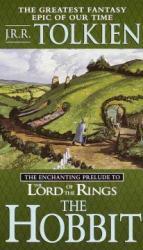
Originally written for his children, J.R.R. Tolkien's fantasy novel “The Hobbit” is hailed among book critics as a remarkable, introductory-level fantasy novel. It manages to engage readers with an epic and timeless plot, while also avoiding the use of profane language and violent scenes.
The tale is set in Middle Earth, home to a number of human-like species including the Hobbits, Dwarves, and Elves. Over the course of the novel, Tolkien provides a rich background of the history of these three species.
Namely, the majority of backstory is setup around the dwarves- who originally inhabited the “Lonely Mountain” and made their fortune off of mining gold. Their empire prospered until at last, a greedy, gold-seeking dragon named “Smog” wreaked havoc to their way of life.
Enter Bilbo Baggings, a middle-aged Hobbit settling down in the Shire. After he hosts a seemingly ordinary dinner party, his life is turned inside out, and the inner spirit of adventure is awakened with him. He joins in a quest to reclaim the dwarf home, and takes part in a number of adventures along the way.
I originally read this book after finishing the “Lord of the Rings” trilogy. While it’s true that this novel is aimed at a younger demographic, it is certainly still an engaging read for older teens and adults. J.R.R. Tolkien embeds a number of rich storytelling devices into his writing, and it makes the read an absolute pleasure!
If you decide not to try this novel, I would suggest reading “A Game of Thrones” by George R.R. Martin. It is certainly not as child-friendly, and has some pretty gruesome scenes, but Martin’s writing makes up for many of the imperfections of Tolkien’s work. Overall, The Hobbit is most aptly suited for readers aged 8-12, and serves as a great introductory novel to fantasy literature. For older readers, I might suggest a different read, but all the same, and in spite of your age demographic, The Hobbit is truly a timeless masterpiece of literature and is worth giving a try!
Reviewer Grade: 10

"A Feast for Crows", the fourth installment in George R.R. Martin's "A Song of Ice and Fire" book trilogy, takes up the challenge of transitioning the narrative from "A Storm of Swords". Readers were left off at the end of the War of the Five Kings, which had drawn havoc to all of Westeros. Throughout the course of this new story, attempts are made to unify the country, but as some relationships are mended- others are torn, and the tale of Westeros continues to grow ever more colorful with Martin's next installment.
The narrative focuses mainly on the happenings of central Westeros, with exclusions to Jon Snow and Daenerys Targaryen's plotlines (which are saved for the next novel.) Cersei Lannister's youngest son, Tommen Baratheon, now sits atop the Iron Throne, and takes guidance from his family members. Cersei and her children mourn the death of Joffrey and Tywin, whose demise is believed to be at the hands of the family Dwarf, Tyrion. However, even as Cersei attempts to make rational decisions, it becomes clear that her mind is clouded with vengeance.
In light of the fact that Martin killed off a number of main characters in his last novel, he pulls his readers into new storylines such as those with Brienne of Tarth as well as characters in Dorne and the Iron Islands. Arya Stark explores a new story arc in Bravos and all across the realm, religion emerges to have an even bigger impact on the plot. Overall, Martin does a fantastic job of bringing up new plot points and transitioning the trilogy into its next narrative.
I began reading this book immediately after the last, and while it’s true that it isn’t nearly as eventful as A Storm of Swords, the plot is equally as engaging. Players in the game of thrones continue to make political powerplays and hidden sabotages, all the while grounding their feet to climb the ladder of power.
One complaint I have with this novel is that its slow pace contrasts poorly with that of the last installment. Readers were left with suspense and eager anticipation for A Feast for Crows, and while they weren’t entirely disappointed, I felt that the beginnings of this book missed a few major fan expectations. This, in part, is due to the fact that there is a 5-year jump from A Storm of Swords to A Feast for Crows. Of course, some details are clearly left out over such a large gap.
If you decide not to continue with this series, I would recommend trying J.R.R. Tolkien’s “Lord of the Rings” trilogy, as it makes up for some of the imperfections with Martin’s work. With all that having been said though, I would certainly recommend continuing on to read this book. Its slow pace may at first deter you from reading, but, from my experience, if you stick through and finish the book, you will be glad to have done so. There are so many rich story-telling devices Martin imbeds into his writing, and paired with the fantastic plot of A Song of Ice and Fire, this book makes for a tremendous read!
Grade 10
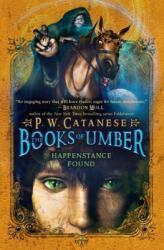
Happenstance doesn't know who he is or where he's from. When he's found in a cave by a team of explorers, he's whisked away into a world of magic and mystery, where he must come to terms with his elusive past and a strange new enemy. I couldn't put this book down. It was fun, adventurous, and surprising, with interesting characters and an engaging plot. I'd highly recommend to those who love fantasy and adventure stories.
Reviewer Grade 9
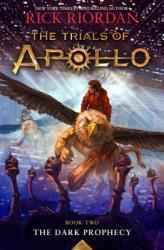
In the second book of the Trials of Apollo series, the former god (currently human) Apollo teams up with Leo Valdez and Calypso to search for a way to restore his godhood, find a missing friend, and stop an evil emperor's plot to take over the world. This sequel was every bit as good as the first book. Fun, action-packed, and surprising. I'd highly recommend to those who love the Percy Jackson books and the Heroes of Olympus series.
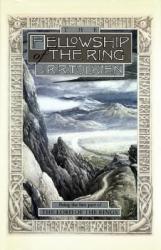
Over 60 years ago in 1954, J.R.R. Tolkien unveiled the first installment of his series “Lord of the Rings” with the publication of “The Fellowship of the Ring”. Unknown to him at the time, his series would stand to leave a legacy- one that would bring together communities’ decades after his death and revolutionize the fantasy genre forever. However, in light of the fact that the novel was published literal generations ago, I would like to try my best to analyze whether or not it stacks up today with modern-day fantasy novels.
The story takes place in “Middle-Earth”, an ancient land in which several human-like species- including the dwarves, elves, and hobbits- coincide. The story features a character introduced in a previous Middle-earth novel from Tolkien, Bilbo Baggins, who plays the same role, after 60 years following his last appearance. In celebration of the 111th birthday of Bilbo, a relative of the family, Frodo Baggins, is given an all-powerful ring- said to have been forged by Sauron the Dark Lord and infused with magical powers.
As Frodo soon finds out from Gandalf the Grey, another wizard, the ring enables Sauron to enslave and dominate all of humanity, which for obvious reasons, poses a threat to Bilbo and his entire species. Determined, he sets off on an adventure to destroy the ring, accompanied by some of his Hobbit-friends. The trip intensifies as time goes on, and as Bilbo explores the vast lands of Middle-earth, he meets a number of new traveling companions. Together, they conquest further and meet new challenges to approach.
I read the first book of this series quite some time ago, and even as a 7th grader, was able to read and comprehend most parts of the book. Though with that being said, I would not recommend this novel for someone who is similarly aged. It’s always worth remembering that the book is 60 years old, so the language is bound to be slightly more difficult to read.
There’s also the fact that Tolkien presents readers with an enormous amount of lore, and it can be a challenge to understand all the details.
When reading through this book, I found myself completely immersed in the story. Tolkien does a marvelous job with engaging readers in his story. The world he has created is described in such animated detail, that nearly anyone can get hooked on his story.
If you decide to skip this book, but are still interested in reading a similar fantasy novel, I would give George R.R. Martin’s “A Song of Ice and Fire” book trilogy a try. While it’s true that the novels in this series bear many similarities to “Lord of the Rings”, Martin’s books usually move at faster paces, with a greater number of surprises and unexpected endings.
In spite of the fact that the book may at times be difficult to get through, Tolkien illuminates his stories with rich language, backstory, and imagery; and for these reasons and more, the novel is certainly worth a try.
Grade 10
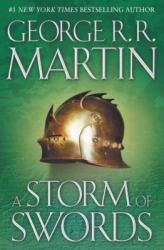
"A Storm of Swords" by George R.R. Martin, which sequels his previous novel "A Clash of Kings", takes root precisely where the last left off. Once again, Martin is challenged with sustaining book-readers attention, in an ever-complexifying story involving a plethora of different characters, motivations, and story arcs. However, after having read the novel, I can testify to the fact that Martin has done an excellent job with continuing the story.
After the "War of the Five Kings" is drawn into motion, young King Joffrey is tasked with defending an incoming attack from Stannis Baratheon. In spite of the fact that Joffrey is vastly incompetent to Stannis, who not only has a larger army but is also a distinguished battle commander, the crown stands a chance with the help of Tyrion Lannister.
Up North, Jon Snow is captured by the Wildlings- a vicious group of Northern barbarians. Meanwhile, Mance Rayder unites hundreds of Northern tribes under the prospect of defeating their common enemy; and gathers them in an attack against the wall. When Jon Snow returns, he warns the watch of their plans, but far-outnumbered, it would seem that defeat is inevitable. The attack draws nearer, and as it does, an unexpected card comes into fold- leveling the odds of the battle.
Across the Narrow Sea, Daenerys Targaryen seeks an army with which she can use to recapture her homeland. Coincidently, Ser Jorah Mormont- an outlawed Westerosi knight- is at her command, and with her, as well as the help of Barristan Semly, former King's Guard's to Daenerys' father, she manages to gather an army of Unsullied. Through a number of risky maneuvers, Daenerys also wins the affection of the common people and takes control of former slave cities.
George R.R. Martin continues developing these plotlines and more, by drawing satisfying conclusions to old story arcs and bringing new beginnings to others. All the while, he manages to keep readers at the edge of their seat, enjoying every moment of the book.
My main complaint with this novel is that while the plotlines are rich and engaging, the sheer magnitude of its length makes it a very long read. I sometimes question whether the series is worth continuing to read, as it takes an enormous amount of time to finish. However, for someone in this position, I might recommend watching the TV series- for which there is currently around 60 hours of content. It is definitely a solid alternative to the book series for someone in more of a time crunch.
If in fact you do decide to switch book series, I would recommend J.R.R Tolkien's "Lord of the Rings" book trilogy. It's similar to A Song of Ice and Fire in some ways, but makes up for certain imperfections found in Martin's work.
Overall, if you have read this far into the series, by my judgment, the trilogy is worth continuing. From "A Clash of Kings" onto this next novel, the plot lines are drawn even further and the story intensified in all the right ways.
Grade 10
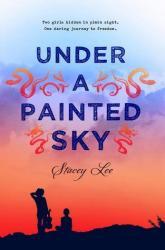
I really enjoyed this book because it was such an adventurous and suspenseful story: just my type. The main character in this story goes through so much I know I could never endure myself, but she kept pushing through it all and made it out all right. There were so many surprising things in this amazing book that happened that I never would have guessed.
Under A Painted Sky was probably the best book I've read this year. Like all books, it had a little blunder here and there, but overall I absolutely loved it.
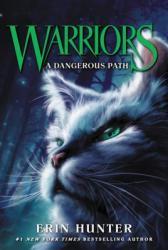
I have always been a Warriors fan, but I found that the fifth book of the Original Series really spoke to me. The protagonist, Fireheart, struggles with the knowledge about the evil leader Tigerstar, but he prevails. I would definitely recommend this book, but it is violent at parts. I probably wouldn't let anyone under the age of 10 or 11 read this, but other than that it's an amazing book full of action and adventure, following cats.
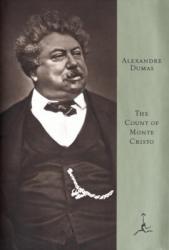
"The Count of Monte Cristo" by Alexandre Dumas is a fantastic whirl-wind of unforgettable characters and interweaving story-lines that left me awestruck and yearning for an even deeper glimpse into this world of treachery, romance, adventure, and mystery. This book is as deceivingly witty as it is over-flowing charisma and has nestled its way to a special place in my heart as one of my favorite novels of all time.
The novel starts out with a scenic over-look of an Italian waterway in Marseilles as it carries along a lofty ship named Pharaon with one passenger in particular who is unlike any other named Edmond Dantès. A dashing young and honest man dawning with potential who has just returned with news that will change the course of his life, and the lives of many others, forever. He is falsely accused of traitorous activity and is sentenced to life on a prison located on an island off the coasts of Marseilles forcing him to leave behind his family, his friends, and the love of his life Mercédès. This marvelous tale unfolds within the walls of this prison and among its outer-walls as Dantès attempts to make a dashing escape with a kind mannered preacher. But, this is only the beginning of his tale. As the life of Dantès unfolds, so does the life of the many others who have been lucky enough to fall into his life.
This novel is truly unforgettable as it follows not only the life of Edmond Dantès, but also the lives of his lover, best friend, family, and even his partners from his shipping company. Filled to the brim with treacherous plots, revenge, heartache, mystery, and pirating; it also contains young love, faith that knows no bounds, and families filled with the knowledge that blood truly is thicker than water.
I would recommend this book to anyone looking to fall in love with not only a menagerie of unforgettable characters, but to a reader who is looking to fall head-first into a world that they will find themselves cherishing forever.
Many blessings and happy reading : ),
Reviewer Grade Level 11.
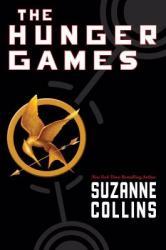
Ever since the release of Suzanne Collin's dystopian novel "The Hunger Games", her work has garnered international acclaim from some of the world's most reputable critics. Adopted into a series of wildly popular films and having been printed more than 23 million times, the staggering success of her novel begs the question, "Does The Hunger Games truly live up to its notoriety?" Well in fact, after having read it multiple times, I can personally say that it far exceeded my expectations.
After the ruin of North America and the collapse of democracy, an authoritarian government arises. In order to maintain oversight of its people, the capitol divides its dominions into twelve districts, each specializing in a different pursuit. Every year, the capitol hosts "The Hunger Games", in which a boy and girl from each district are randomly pooled into a survival competition. Participants must fight to the death in a futuristic arena, all the while being broadcasted live on TV.
Enter Katniss Everdeen, a 16-year-old teenager from the impoverish District 12. In an effort to protect her sister, she volunteers as a tribute to the game, but as she heads to the capital, she realizes that her life will never be the same. Through the course of the story, Katniss struggles to balance her conflicting emotions, and comes to understand the harsh reality of life in Panem.
As Katniss makes these revelations, the reader has the chance to pick up on a number of powerful themes, examples of which include the dangers of reality shows, the ever-growing obsession with fashion trends, and the consequences of desensitization to violence. Not only is this novel an action-packed and engaging read, but it also leads readers to share meaningful conversations about changing ideologies in the 21st century.
I picked up this read after watching the book-inspired film, and have been pleasantly surprised with it. While the movie makes fair and accurate adaptions to the story, it misses out on many of the themes presented in the books. For this reason, I would certainty recommend continuing on to read the novel after watching the movie, as there is plenty of unique content from the book. If you have not watched the movie, I would advise even stronger to pick up this read. For the reasons previously mentioned and more, I honestly am so glad to have read this book.
One complaint I might bring up is that while a large majority of book readers are young, the novel has some extremely gruesome scenes. If you are to read this book, be forewarned of violence. Furthermore, I found some passages difficult to read, due to the choppy-sentence structure used by Collins. This may just be a personal preference, but I felt that it was of detriment to the story.
Overall, "The Hunger Games" will certainty appeal to teens 13 and up and leave readers with discussion points about government, free-speech, sacrifice, moral desensitization, and other thought-provoking themes. It mixes an enthralling plot with rich and powerful messages- a formula bound for literary success.
Reviewer Grade 10
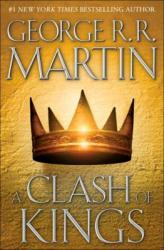
"A Clash of Kings", the second installment in George R.R. Martins "A Song of Ice and Fire" book trilogy, picks up where the first novel, "A Game of Thrones" left off. With the death of the King, Robert Baratheon, and his hand, Eddard "Ned" Stark, war rages throughout the realm, with a total of 5 lords declaring themselves for the throne. Robert's brothers, along with their allied houses, raise their banners in outlaw to the crown, while young King Joffrey defends his claim to the Iron Throne.
Meanwhile, Eddard's eldest son, Rob, rallies the North to secede from the Seven Kingdoms in declaration of their own "King in the North". This, of course, reaps certain consequences in a system built on partitions of trust and loyalty. In the midst of this turmoil, yet another lord, Balon Grejoy, who holds the Iron Islands, joins the fight, and in a distant fog from across the Narrow Sea, lies Daenerys Targaryen. She formulates an Army of Unsullied warriors and manages to acquire 3 dragons, restoring honor to her house and strengthening her claim to the throne.
With time, the war unfolds, and as it does, so do an onslaught of secrets, lies, and betrayals unforseen to even some of the most observant readers.
Martin continues to draw inspiration from English history, while also divulging from reality with the continuation of the white walker plot line.
I moved onto this book from "A Game of Thrones", and can genuinely say that I think it was a major improvement from its predecessor. Although the plot may still move a bit slow for some, now that George R.R. Martin has set the stage with background information, there is much more action than in the previous installment of the series.
One personal complaint of mine is that the sheer magnitude of characters, lore, and history presented in the book can get a bit confusing at time.
Especially for someone who is trying one of their first fantasy novels, this book may not be the best fit. On the contrary, however, if you're looking for a longer, and more austere, read, I would certainly continue onto this book from the last. The plot only gets better with time, and I think you'll be pleasantly surprised. If you decide not to keep reading A Song and Ice and Fire, though, I would recommend trying any one of J.R.R Tolkien's fantasy books. From my opinion, they are similar in style, but different enough to cater to one another's faults.
Grade 10
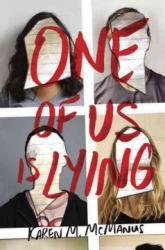
One of Us is Lying is like The Breakfast Club, as it it involves a bunch of "teen movie stereotypes", during an interesting detention. These include Bronwyn, the "brain", Nate, the "criminal", Addy, the "beauty", Cooper, the "athlete", and Simon, the "outcast". However, the similarities end there, as one of them, Simon, dies from a suspicious allergy attack during the detention. Simon was the creator of the gossip app known as "About That," which shared other students' secrets and gossip. He had been planning to post about the other four before his death, making them all suspects in his murder. Or is it all a frameup? The reader has to decide whether one of the incredibly likable four leads is a lying murderer, or if they're all victims.
This book was very addictive. McManus' writing was detailed, and she was able to distinguish the four's voices as their own. No one sounded or felt the same, and each of their narratives were equally enthralling. Each lead character is a deconstruction of the stereotype they're based off of, and in a way, this is a deconstruction of the mystery genre in general; unlike most, it's more character driven than plot driven.
My main complaint is that some of these students seem overly capable in a way. Not just the four, but the supporting character's talents are beyond most high schoolers. It may have made more sense if the setting was in college. However, this is something I see a lot of in YA fiction today, so it doesn't overly bother me, and it didn't lessen my enjoyment of the book.
I recommend this if you like mysteries and character driven stories where every character, both leading and supporting, are developed, fleshed out characters.
Reviewer Grade: 12
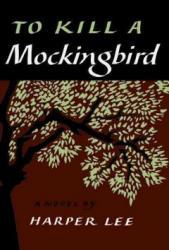
The novel “To Kill a Mockingbird,” by Harper Lee may strike your perception as a seemingly uninteresting story. The book tells the tale of two young children in a sleepy Alabama town, and at face-value, the plot does not garner much intrigue. However, I was in the same situation when I was required to read this book in the spring of my freshman year at high school.
Indeed, while at first the story seemed boring, as I continued to carry on with reading, every turn of the page immersed me ever further into Lee’s timeless story.
As a reader, you share the emotions felt by Jem and Scout, two young siblings, as they learn the nuances of life in the prejudiced American South during the early 1900s. Not only was their community weakened by the economic collapse of the Great Depression, but also sickened by the bitter contempt felt among whites and blacks.
In the beginning of the novel, Jean Louise “Scout” Finch and her brother Jem innocently play games with their friend “Dill” and enjoy life in Maycomb with their father, Atticus. During this time, they have little to no apprehension of the racial tension hanging in their society, but when their father, Atticus Finch, who works as lawyer, openly chooses to defend an African American in court, trouble arises.
Jem and Scout undergo a number of personal developments during the course of the novel. While at first, they carry with them a genuine and child-like innocence, the court trial their father has taken on exposes them to the racist indignity felt by their fellow community members. Jem and Scout struggle to balance their conflict between the social norms of Maycomb and the morals their father has instilled in them. With the trial’s end, Jem and Scout are lead to discover the imperfections of their society, and the ways with which they are forced to deal with them. As the reader follows along, they not only watch Jem and Scout change, but they too themselves are shaped through Lee’s captivating story.
Overall, I enjoyed most aspects of the book. Although some scenes I felt were a bit plain and unprogressive, these minor flaws were overshadowed by the powerful themes Lee expresses through the story. If you haven’t already read To Kill a Mockingbird, I would certainly give the novel a try. If not for the genuine enjoyment of reading the story, try this novel to feel the powerful emotions stirred from Lee’s literary masterpiece.
Reviewer Grade: 10
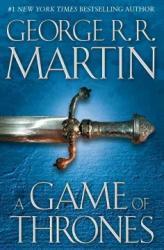
“A Game of Thrones” by George R.R. Martin tells the tale of various clashing households and their quest to conquer control over the seven kingdoms. Set in a distant, but vaguely familiar medieval-Europe, the story bears parallels to England’s “War of the Roses,” while also introducing its share of unique fantasy elements. As the reader progresses through the book, they follow the politics of the Iron Throne- a metaphor representing the complete and utter control a King possesses in a feudal government system. Furthermore, the reader tracks 8 character perspectives, which are alternated through passing chapters.
As the King rides north to Winterfell to meet with his trusted vassal, and friend, Eddard "Ned" Stark, he strikes up an agreement to anoint Eddard as the hand of the king. Reluctant, Ned follows the King back to the South, but as the plot continues to unfold, Eddard learns of a secret unbeknownst to the King and some of his most trusted advisers. With the death of the King and the ruin of Eddard’s house, war rages in Westeros- as several characters attempt to strike their claims on the Iron Throne.
I initially picked this book up after finishing J.R.R Tolkien’s, “Lord of the Rings” series and have been pleasantly surprised with it. Many fantasy readers have speculated that the literary masterpiece of Tolkien’s novels could not be out done, but I am now inclined to disagree. I thought the book was well-crafted and engaging as an intermediate to advanced reader. However, I would file the complaint that the book moves a bit slow for my taste. Some may lose interest in its plot, especially considering the sheer volume of the book series. The old-language also adds to this effect, as it may cause some readers to struggle following along.
Overall, I would say that this book is certainly worth a try for someone who enjoys medieval-fantasy novels. Admittedly, it will take a while to read and is certainly no small undertaking, but by sticking with it, I found myself enjoying every page more than the last!
Grade 10
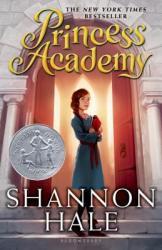
In Princess Academy, Miri, a girl from Mount Eskel, competes in a mandatory royal preparation academy. Her life completely changes when she starts to smell danger. Indeed, her once-small town is now the target of disaster. She must team up with her fierce competitors from the academy to save their own lives, the academy, and the lives of everyone on Mount Eskel.
This book is nothing if not charming. I loved the characters, and the plot was well-developed. The setting was perfect for the events that transpire, and I would strongly recommend this book, as it is a great light read.
Reviewer Grade: 11
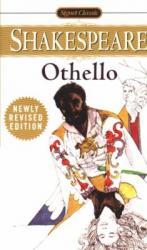
Shakespeare's Othello is about a Moorish general for the Venetian army, Othello, who falls in love with a Venetian lady, Desdemona. Unfortunately, Desdemona's father is very racist and sees Othello as vermin when he finds out they're in love. Being Shakespeare, this book is very tragic.
Though this play may have been well-written, I don't have much else good to say. The plot is extremely simplified, and the characters are infuriatingly stupid. This book is not a boring read, but it is also in no way interesting.
The characters are not very developed, relatable, or lovable. This dramatically stunts this play's ability to be tragic. Needless to say, I am not a huge fan of this book, but there were some good things about it.
Reviewer Grade: 11
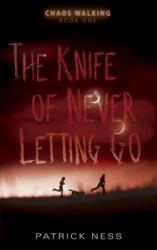
What a fabulous beginning to a fabulous series. Todd, the 13-year-old main character, has lived in Prentisstown all his life, but he soon discovers he knows nothing about the city at all. In fact, his whole life has been a lie.
As Todd and his dog, Manchee, run from the dangerous truth, more and more of Todd's presumptions about the New World are busted. This book is gripping, enticing, and heartbreaking all at once. I adore all the characters, and after having read the entire trilogy, I feel as if I know the characters like siblings.
However, there is one problem for me with this book. One of the antagonists is extremely exaggerated, to a point that it almost seems goofy. This interrupts the heroic and innocent tone. Despite this, I would absolutely recommend this book; you will be immediately sucked in to Patrick Ness's world.
Reviewer Grade: 11





 Ruth Holley Library will be temporarily closed for approximately one week starting Mon., Dec. 2 to complete roof repairs.
Ruth Holley Library will be temporarily closed for approximately one week starting Mon., Dec. 2 to complete roof repairs.